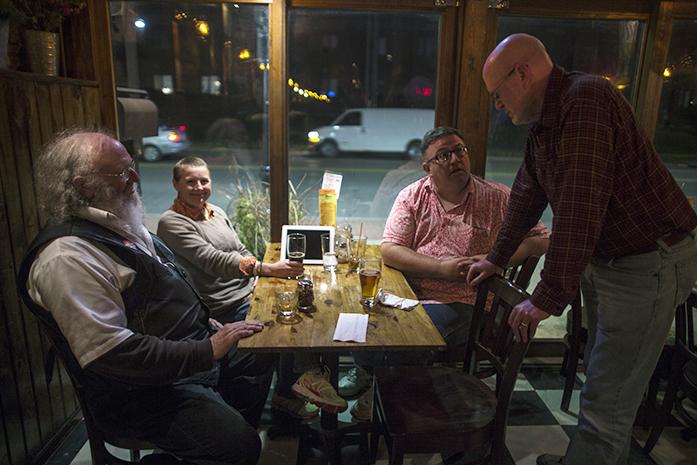An overhaul is on the horizon in the Iowa City City Council. As a result, a local alliance of self-identified “progressives” claimed the four open council seats. By using campaign tactics targeted through community interaction and stressing the importance of reciprocating to that community, Iowa City’s “Core Four” took two incumbents’ seats.
With the turnout slightly exceeding expectations at 15.18 percent, Tuesday night’s polls announced at-large bid victories to local lawyer Rockne Cole and Councilor Jim Throgmorton (who will swap from District C) as well as the District A seat to former UIHC nurse Pauline Taylor and District C seat to retired landscape architect John Thomas. With Thomas edging out other District C candidate Scott McDonough by a slim 200 votes, the grass-roots campaign of the Core Four succeeded.
In light of numerous community controversies with the City Council at the focal point, the Core Four, spearheaded by Throgmorton to combat the current roster and candidate endorsements opposite of the coalition, aimed its campaign at dismantling present trends. The alliance did not emerge from deliberation. Rather, it was a serendipitous arrangement of core platform agendas that complemented each other, Throgmorton told the Press-Citizen.
From the infamous Lee Recreational Center incident between an African-American teenager and white police officer on June 17 to the traffic-stop demographic study conducted by St. Ambrose University a year earlier, the local alliance pledged to instate racial equity in the community. The candidates also objected to tax-incremente financing, frequently used by the city government to subsidize developers, which has accumulated millions of tax dollars that will not be available for the city’s purse.
Where TIF has been handed out to developers and their plans for downtown, the Core Four candidates have each stressed closer relationships to neighborhood development. Attenuating developer gaze, the coalition aligned its focus toward historic preservation as well as more consideration for the community on more local levels, including emphasis on school districts. The candidates’ platforms spurred environmental sustainability for the local landscape as well.
Thomas outlined tree-lined streets. Cole stood for improving local garden and food access. Throgmorton and Thomas coordinated revamped blueprints for improved environmental aesthetics at Twain Elementary.
There is a key defining feature of the Core Four: Throgmorton, Thomas, and Taylor are no longer practicing professionals, while Cole is a lawyer. Together, their focuses are aimed almost solely at Iowa City and community evolution. Cole and Throgmorton have a track record for prodding developers, while Thomas and Taylor emphasized solutions to pressing social issues.
Where some communities rely on political party affiliations for local governance and coalitions, the Core Four proved how a grass-roots alliance could sweep elections. Rather than subscribing to platforms hammered out from the top down, the fact that these alliances can and do form at some level of government proves the political machine can operate beyond one key descriptive trait.



